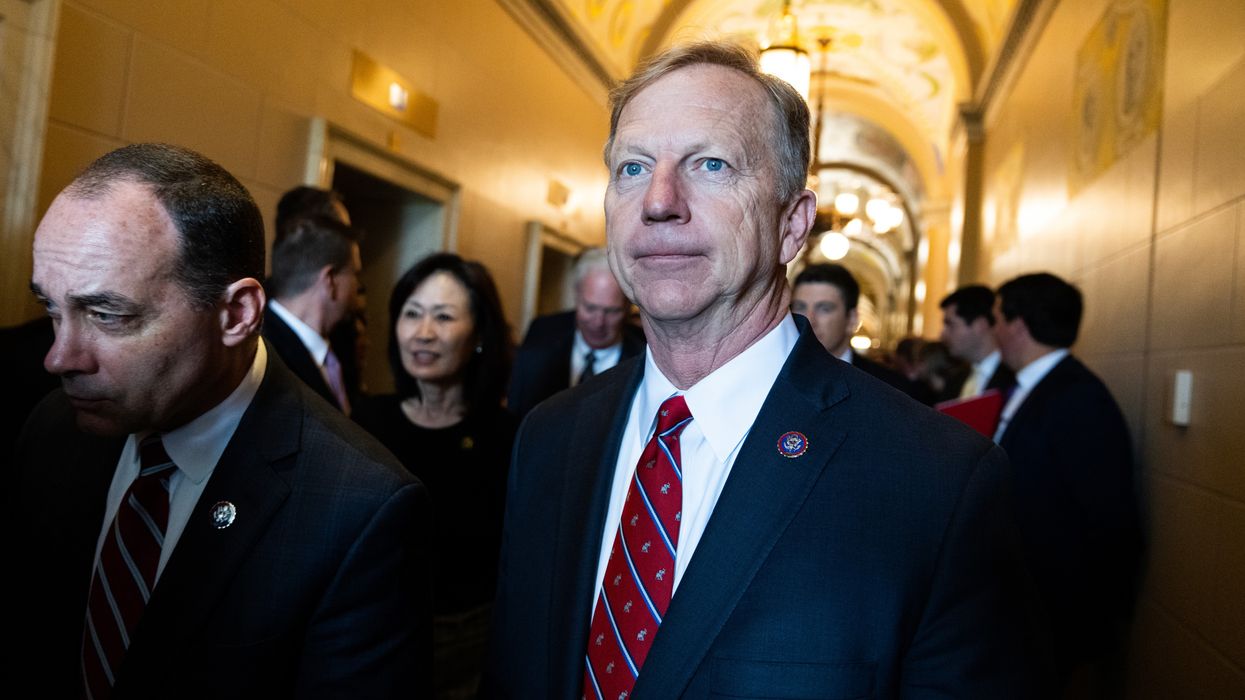House Democrat Calls GOP Budget a 'Blueprint for a Dystopian Hellscape'
Rep. Don Beyer warns the plan "would see unbridled benefits flowing to a wealthy and well-connected few while tens of millions of Americans lose healthcare, housing, retirement security, and food security."
As Republicans on Wednesday set their sights on a key seat opening up in the U.S. House of Representatives, the chamber's senior Democrat on the congressional Joint Economic Committee put out a blistering takedown of a top GOP budget proposal for the next fiscal year.
Congressman Don Beyer (D-Va.) took aim at the 180-page "Fiscal Sanity to Save America" plan released last week by the Republican Study Committee (RSC)—which includes about 80% of GOP House members—following proposals from Democratic President Joe Biden and House Budget Committee Chair Jodey Arrington (R-Texas).
"The Republican Study Committee budget is a blueprint for a dystopian hellscape," he warned. "The vision offered by this group, which counts 4 in 5 House Republicans as members, would see unbridled benefits flowing to a wealthy and well-connected few while tens of millions of Americans lose healthcare, housing, retirement security, and food security."
RSC proposals to "dramatically weaken healthcare," Beyer noted, include turning Medicare into a voucher plan and rolling back Inflation Reduction Act (IRA) provisions that cut costs for seniors; repealing tax subsidies for the Affordable Care Act and the law's protections for people with preexisting conditions; and transforming Medicaid and the Children's Health Insurance Program into block grants to states.
As Common Dreams has reported, in addition to seeking cuts to Medicare and Social Security—while claiming to do nothing of the sort—the RSC has also launched a full-fledged assault on reproductive healthcare and rights, promoting 42 bills that would ban abortions after 15 weeks or even earlier, require unnecessary ultrasounds and 24-hour waiting periods, prohibit the use of fetal stem cells for research, and threaten access to in vitro fertilization, among other restrictions.
In addition to attacking reproductive freedom and key programs for seniors and low-income families, Beyer highlighted, the RSC wants to "weaken public health, public safety, and environmental protections," while "cutting taxes for the wealthy, by a lot."
The RSC advocates ending green tax credits from the IRA and Infrastructure Investment and Jobs Act as well as slashing money for Community Oriented Policing Services and the Bipartisan Safer Communities Act. The committee also calls for permanently lowering taxes for the ultrarich, indexing capital gains taxes to inflation, repealing the estate tax, rolling back the IRA's corporate alternative minimum tax, and eliminating funding intended to help the Internal Revenue Service catch wealthy tax cheats.
"Democrats believe there is a better way to get our fiscal house in order without betraying our values," said Beyer. "That starts with making smart investments in our people and our future while demanding that the rich and large corporations pay their fair share in taxes. The contrast between the Democratic approach and this Republican budget could not possibly be clearer."
Biden's budget blueprint—released as he prepares for an electoral rematch against former Republican President Donald Trump, who infamously cut taxes for rich people and corporations—proposes a 25% minimum tax for individuals with wealth of more than $100 million, along with ending capital income tax breaks and closing other loopholes.
Polling results released Tuesday by Morning Consult show that a majority of voters across party lines in key swing states support raising taxes on people who make more than $400,000 per year.
Biden and the divided Congress this past weekend narrowly avoided a government shutdown by passing a long-delayed spending package. Fiscal year 2025 is set to begin in October, setting up another election-year fight over funding.
In what's been
dubbed the "Great Resignation," a growing number of House Republicans have announced that they are not seeking reelection or even exited their seats early—shrinking the party's already slim majority in the lower chamber.


